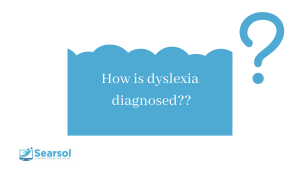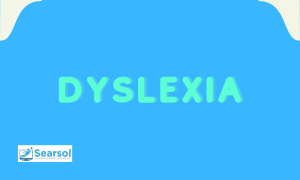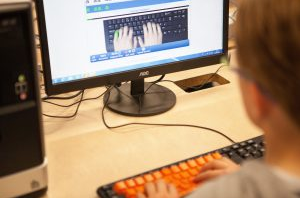March 19, 2021
Your child is diagnosed with dyslexia. What are the main things you should do?
Your child is diagnosed with dyslexia. What are the main things you should do?
This blog will really go in-depth into understanding what dyslexia actually is, how it is diagnosed and then the actions which can then be treated for this diagnosis. Now it is important to begin by noting that there is no one test that can simply diagnose your child with dyslexia.

What Is dyslexia?
So, let’s begin by looking at what dyslexia is. Dyslexia is best described as an unexpected difficulty with being able to read. Children that have dyslexia may encounter problems when it comes to the recognition and manipulation of sounds with language. Decoding words is something that children with dyslexia will have great difficulty with, which essentially means breaking down these words or phonemes and then sounding out novel words.
Dyslexia makes it hard for the child to recognize words, read and write properly, and even spell properly. It’s important to note that a child who has dyslexia does not necessarily lack intelligence. A child with dyslexia may not even be that far behind their other peers in school due to the hard effort they may be putting in to be at the same level as everyone else in their class. However, it must be noted that this is only sustainable for a child with dyslexia for so long. As they start to get older in school they will struggle to keep up with their fellow classmates as the reading, writing and spelling will, of course, become harder as they grow older.

Signs of dyslexia and how it is diagnosed
If you are worried that your child may have dyslexia there may be certain signs or a combination of these signs that will indicate the possibility that the child has dyslexia.
Some of these are as follows:
– Being speech delayed
– Struggling to stay concentrated and flowing directions
– Being unable to differentiate left from right
– Having problems with small words, i.e. leaving words like if, and, or but, out of sentences
– Being unable to learn straightforward simple rhymes which kids their age are expected to be able to learn
It’s also worth pointing out what children in school that may have dyslexia are likely to do
– Unable to write down notes from the board and be able to read these notes in a timely manner.
– Inability to read fluency, as they will continue to read in a slow manner so that they are taking everything they can in while others speed ahead.
– They constantly reverse letters and numbers when reading and writing, whereas usually kids will stop this habit by the age of 8 years old.
Again, there is no single test that can diagnose someone with dyslexia, however, there are factors that can go a long way to determining whether your child may have it, these being
– Child’s development and educational issues will be assessed as doctor’s will want to know whether dyslexia is something that has run in the family or not.
– Vision and hearing tests may be done in order to find out whether another disorder may be having an effect on your child’s ability to read and write.
– Psychological testing can be advised by a doctor in order to assess the child’s mental health. Psychological testing can figure out whether things like depression, anxiety and so on, maybe having a detrimental effect on the child’s ability.

Treatments for Dyslexia
There is no known cure that will completely get rid of dyslexia as it is something that a person must live with for the entirety of their life. That does not take away, however, from the fact that the earlier that the diagnosis can be detected, then appropriate measures and treatment can be undertaken to improve success.
Treatments that can be taken to help your child are as follows:
– Be able to recognise small sounds that makeup words. These are known as phonemes.
– Have the child be able to understand what they are reading.
– Get the child to read out loud, which will help improve reading accuracy, speed and expression.
– Try to build a vocabulary of words that the child will understand and recognise.
– Have the child pulled out of class more than once a week, which will help with the intensity of intervention. The more one on one time a child has the greater benefit it will be to them overcoming this disorder.
– Drilling sight words.
– A quiet space for the child to work at home so they can focus on what they’re learning.
– Teaching phonological skills.
The key here when looking at all these points is to really put emphasis on being able to find ways to decrease a child’s discomfort when reading and to make things like reading, typing and writing something which a child can have fun with and enjoy. Keeping the discouragement to a minimum and encouragement to a maximum will go a long way to helping your child succeed. Below are the main ways you can go about supporting a child with dyslexia:
– Always be supportive even when they may be struggling most, it is you that needs to be there to encourage them to push on and overcome their difficulties.
– Limit the amount of screen time for the child so that they can use that spare time to focus on being able to improve their learning difficulties.
– Keep in contact with teachers. Do this often as it will give you a better understanding if the strides your child is making at home are relating to the classroom also.




